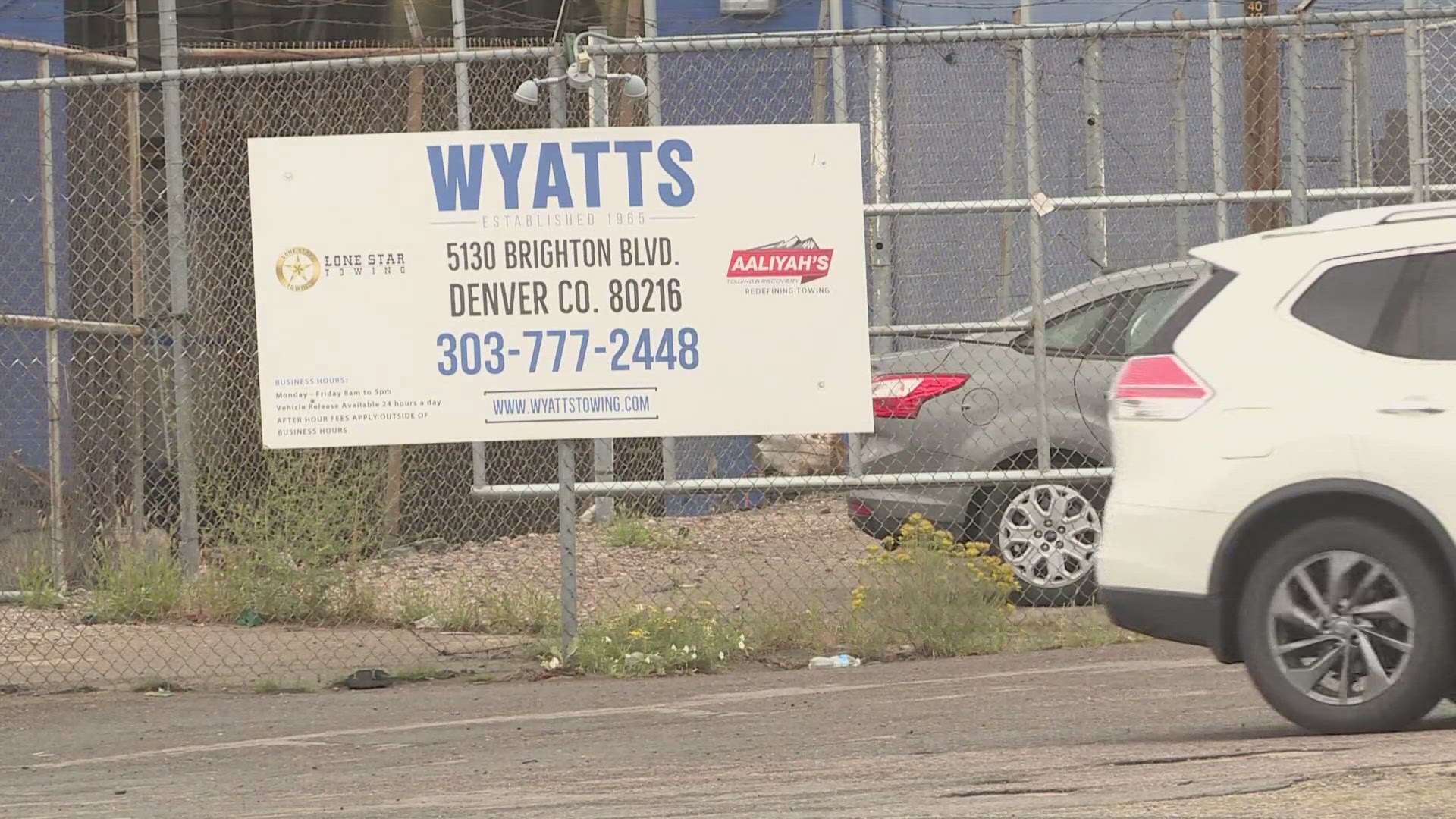DENVER — Last week, the Colorado Attorney General's Office announced thousands of victims of illegal towing will receive restitution checks in the mail, following a $1 million settlement with Wyatts Towing.
The office said more than 5,000 people will receive the checks. Eligible recipients have been identified based on Wyatts Towing records, and checks will be sent with no further action necessary on their part, the office said.
Late last year, the office announced the settlement, which resolved a state investigation into "illegally collected fees, unlicensed towing, and other unfair and deceptive business practices," the office said.
Bryan Jameson, a former public policy analyst for the Colorado Office of Policy, Research and Regulatory Reform, said he looked into "predatory towing" back in 2018. At the time, he was assigned to analyze the Public Utilities Commission's transportation sector.
"The PUC regulates towing companies in Colorado, so that’s how I came in to review the towing law," Jameson said. "We look at the laws and we look at the way things actually operate in government. Does that match? And if it does match, is it still relevant? Does it protect consumers and the public? If it doesn’t, then we go to the legislature with recommendations to either continue this program with modifications or eliminate it because it's no longer relevant."
In a recommendation to state lawmakers, based on speaking with consumers and towing companies, he found that responsibility was too easily passed off. He said towing companies, under PUC rule, could tow when they chose without blame.
According to the sunset review, "in some of those cases, a towing carrier acts as an 'agent' for the property’s manager. Many of those agency contracts allow a vehicle to be towed from a property without any specific, instance-related approval from the property’s manager. The towing carrier is empowered by agency to act on its own.”
"So, you have to make somebody responsible, and that’s what the recommendation was about," Jameson said.
The review said 1,099 complaints were made for unwanted towing between January 2015 and April 2018.
Jameson said he spoke with people impacted and found Wyatts Towing to be one of the largest offenders of nonconsensual towing.
"It’s one of the companies that made it so I heard the phrase 'predatory towing' that I had never heard in my life," Jameson said.
He said it may not have stopped Wyatts from its illegal activity, but it could have provided another check in the overall industry.
The 2019 legislature did not approve the recommendation.
Jameson was left to wonder: if things had been different, could there have been fewer victims of predatory towing practices?
"When I hear stories of single moms not being able to go to work, losing their jobs or the people living paycheck to paycheck that can’t afford to pay a tow, that they shouldn’t - that was totally unjustified," Jameson said. "That’s just crazy stuff. It’s literally robbery."
He said some of the hardships could have been prevented.
"In my more than 20 years of public policy in the state of Colorado, it’s one of the losses that really hurt because it was all about the consumer," Jameson said.
Six years later, Wyatts would find itself in a lawsuit, that would call on the company to pay more than 5,000 people in restitution.
“Though these checks are not enough to make everyone whole who Wyatts harmed, the restitution we were able to secure is relief for those who were forced to pay illegally collected fees, incurred illegal debt, or endured the hassle of having their vehicle unlawfully towed,” Attorney General Phil Weiser said.

